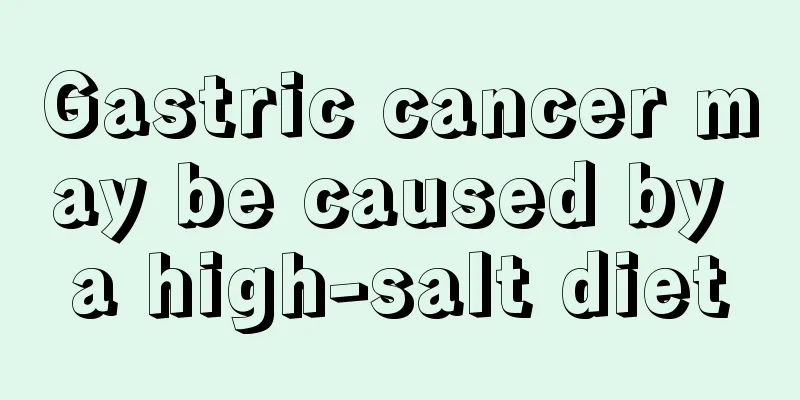What are the side effects of nutritional supplements?

|
In recent years, a series of large-scale clinical and epidemiological studies have found that nutritional supplements are not effective in preventing chronic diseases such as cancer and heart disease, and vitamin C supplements are ineffective in preventing and treating influenza and colds. At the same time, there are more and more reports of side effects from taking nutritional supplements. The widespread use of calcium tablets is related to the prevention of osteoporosis. At the beginning of the year, the U.S. Preventive Services Task Force analyzed and summarized 135 related studies and found that calcium tablets cannot prevent fractures in postmenopausal women. An analysis of 15 studies found that taking calcium supplements without vitamin D increased the risk of myocardial infarction by 30%. Results of a large study showed that women's risk of myocardial infarction increased by 24%, regardless of whether they took vitamin D with it. Another study found that calcium supplements could increase male smokers' risk of death from cardiovascular disease by 20%. This most likely happens because calcium from nutritional supplements accumulates in the arteries. In addition, calcium tablets will have an impact on patients with kidney disease, and may also affect the efficacy of certain antibiotics, osteoporosis drugs and thyroid drugs. Calcium supplements may also increase the risk of kidney stones, while calcium obtained from the diet does not. Vitamin A: Vitamin A deficiency is common in poor countries, especially among children, and can cause vision problems such as night blindness or even complete blindness. Adding vitamin A to food and using genetic engineering to create vitamin A-rich golden rice are solutions to vitamin A deficiency in these countries. If your diet contains enough fortified foods, dairy products, fruits and vegetables, there is no need to take vitamin A tablets. Side effects of vitamin A include mouth ulcers, chapped lips, cracked nails, worsening of psoriasis, eye pain, peeling, hair loss, skin irritation, dryness, pain or redness, diarrhea, indigestion, fatty liver, chronic hepatitis, cirrhosis, cough, fever, respiratory tract infection, increased mother-to-child transmission of HIV, and death. Taking large amounts of vitamin A in the short or long term can cause poisoning, especially for people with liver disease and heavy drinkers. Alcohol, tetracycline, anticancer drugs, etc. will increase the side effects of vitamin A. If you smoke, drink and take vitamin A tablets, the risk of lung cancer increases. If pregnant women take excessive amounts, it can cause birth defects. Vitamin A also increases the risk of bleeding, so patients with blood diseases should pay attention. Vitamin C : Vitamin D helps with calcium absorption and is the only nutritional supplement some experts recommend as worthwhile. Vitamin D is mainly synthesized by subcutaneous fat through sunlight. If you don't get enough sunlight, such as living in a cold zone, you may be deficient. Vitamin D tablets are relatively safe, but taking too much may increase the risk of falling due to fractures, urinary tract infections, reduced appetite, weight loss, hypercalcemia, and an increased risk of cancer. Vitamin D can lower blood sugar levels, so people taking hypoglycemic drugs should be careful. It will also lower blood pressure, so people with low blood pressure should also pay attention. Vitamin E: Vitamin E deficiency is rare, and vitamin E supplements became popular because of their antioxidant properties. However, several large studies have found that not only are they ineffective, but people who took vitamin E supplements are more likely to suffer from heart failure. They also found that taking more than 400 international units of vitamin E supplements per day increases mortality by 4%. If taken with other supplements, the amount increases by 6%, so vitamin E supplements are one of the nutritional supplements that should least be taken, especially by patients with heart disease. Taking vitamin C supplements during pregnancy can cause low birth weight in babies, and taking it alone may also cause congenital heart defects. fish oil: Recent studies continue to disprove the effectiveness of fish oil. A paper published in July this year replicated the results of another study two years ago and found that men who took fish oil supplements could increase their risk of prostate cancer by 43%. Taking this supplement may cause nausea, diarrhea, constipation, loss of appetite and vomiting. It may also cause loss of short-term memory, headaches, hemolytic anemia, depression, increased risk of colon cancer, aggravated asthma symptoms, and increased blood pressure. Fish oil can also increase LDL cholesterol levels. Long-term use of fish oil can lead to vitamin E deficiency and increase the likelihood of vitamin A and vitamin D poisoning. Glucosamine sulfate: Its effect on osteoporosis has not been confirmed, and side effects include dizziness, insomnia, headache, constipation, nausea, diarrhea, heartburn, etc. Because there is no scientific evidence, it is not recommended for pregnant women to take it. In short, nutritional supplements have reached the point where they are useless and harmful. |
<<: Eight kinds of fruits will cause miscarriage if eaten by pregnant women
>>: Revealing the six "lies" about drinking. Does a red face mean you won't get drunk easily?
Recommend
Big belly and small breasts
A big belly and small breasts is a common problem...
Why can't men eat raw garlic
Garlic is a must-have condiment for every househo...
Is it normal for a seven month old baby to nod?
For a seven-month-old baby, if it is a boy, the n...
Taking 33 doses of Chinese medicine to cure gallbladder cancer
Ms. Wang, 28 years old, had yellow skin on her fa...
Where can I get dehumidifying moxibustion
There will be some moisture in people's bodie...
Traditional Chinese medicine prescription for gastric cancer
Chinese medicine prescription for gastric cancer ...
What should be avoided in the diet for hamartoma
The causes of hamartoma are not only diverse but ...
Are walnut kernels useful?
With the rise of the health craze, more and more ...
Is it harmful to eat cucumbers with flowers?
Cucumber is a common vegetable in life. People wh...
What should I pay attention to when doing fallopian tube angiography
As the pace of life continues to accelerate, more...
Secret History of the Harem: How did the Emperor’s favorite concubine enlarge her breasts?
Breast augmentation is not exclusive to modern wo...
Desensitization treatment for chronic urticaria, identify the allergens and then treat
Chronic urticaria can cause great pain to patient...
Is early treatment of bronchial lung cancer good?
Early bronchial lung cancer is easier to treat. I...
Effects and functions of water grass agate
Many people in life must have heard of water gras...
The difference between saury and Spanish mackerel
There are many types of fish with different shape...









